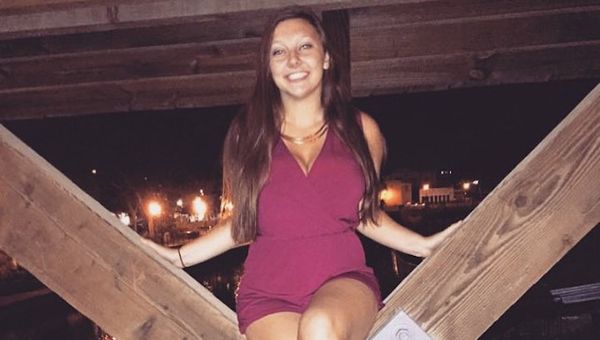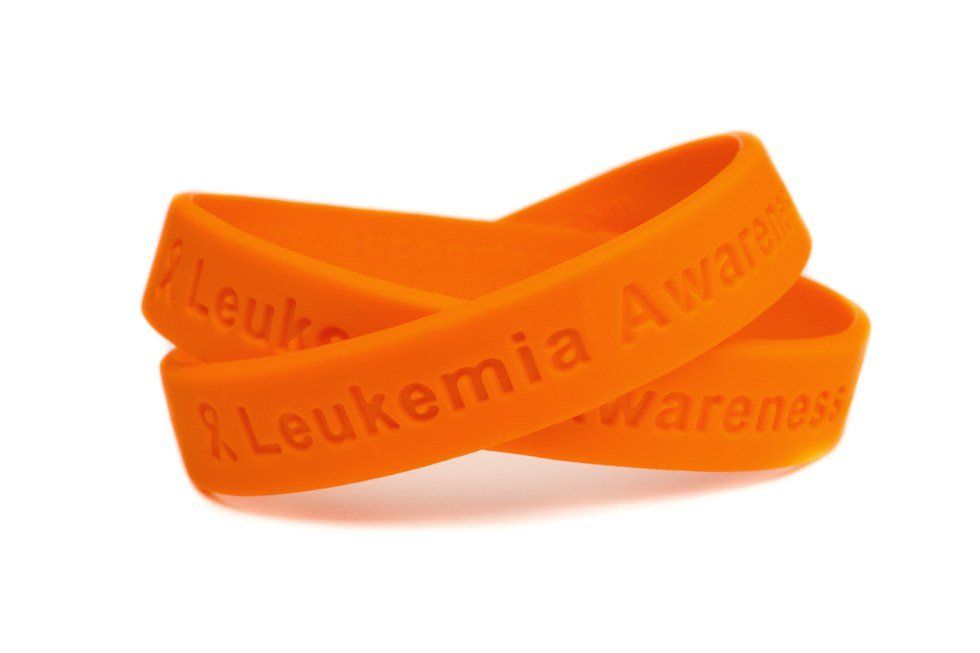At seventeen, you think you’re prepared for anything. Seventeen years is a long time to become accustomed to life, to see and experience it, to immerse yourself in the good, the bad, and the ugly. Our world is a large place, and time, presumably, is just as supplementary. At seventeen I did not realize how little we are guaranteed. I still don’t. But with each passing year of my life, I am constantly shaped by the experiences that come my way. Of everything that’s influenced me, I was most affected by the unexpected lead weight of finding out one of my best friends had cancer.
I found out Abby was diagnosed with acute myloid leukemia in May of 2015. I was waiting in line for a concert as my friend texted me with the news. This was the very last thing I had expected to hear. I felt shock, like lightning pulsating through my bones. I couldn’t fathom why such a terrible disease would fall upon one of the greatest people I knew - so young, so smart, and so promising.
When Abby was diagnosed, my friends and I refused to sit on the news and let the negative emotions fester. We pushed forward into organizing a fundraiser for her and her family. Medical costs, gas, and meals add up, so by selling shirts emblazoned with “Abby’s Army,” we collected a fund for her use. Our focus settled on helping Abby in any way we could. I felt passion radiating from those around me. In truth, we knew the best thing we could do for Abby was to simply give our time and support.
I visited Abby twice before she passed in August. The first time, she was brave and full of laughter. She was staying at Pittsburgh Children’s Hospital. I drove there with my mom as practice for future visits; I was certain there would be much more time to spend with her. We learned of how she thought it was just the flu, until one symptom transformed into another, and another. Her mother asked me to return again because Abby was in desperate need of company. She was facing cancer head-on with determination I could only hope to duplicate. I felt hope surging in my veins with an undeniable presence. She was equipped with enough strength to make it; I just knew it.
When I visited Abby the second time, it became apparent how ill she truly was, how much the chemotherapy had stripped her of energy. The ugly side of cancer was staring me in the face. I was accustomed to pictures of children from hospital ads, with little to no hair, smiling and playing. I saw a girl with little physical strength and all-consuming tiredness. She was still brave and friendly as ever; she made conversation and traded stories with my friends and me. The hospital walls were decorated from top to bottom with “happy birthday” and “get well” cards. I knew Abby’s unwavering strength outshined her physical ailments. I felt searing pride in my heart for her.
I got a call informing me that Abby had passed as my mother, my friends, and I were driving back home from school shopping. The news of her passing came as unexpected as her diagnosis. I had just seen her a few weeks prior. I could not bring myself to understand the truth. I felt denial, sturdy and stubborn, residing in my thoughts.
All I could think about was how many opportunities Abby had been denied due to her shortened life. Many of her “firsts” still laid in her untouched future. Surely her bright mind would’ve easily led her to an astounding college, and later into a great job. The possibilities were endless for her. I did not know how to handle this, and nobody knew how to handle me. I appreciated all the kind words spoken to me in that difficult time, but I couldn’t shake the feeling that losing Abby was unfair. I felt anger, hot on top of my ears and pounding into my head.
Abby’s showing felt unreal. I never expected the worst possibility to come true. It was always a thought, looming in the back of my mind, but youthful idealism and a fountain of hope had blinded me of the reality at hand. Driving in the procession, I felt a shift inside. My hope in life was diminishing. It seemed so unfair. As we laid Abby to rest, I tried to find acceptance, but only found disgust. Abby never deserved this -no one ever does, but especially not someone so young and bright. I felt sorrow, guilt, and depression settling at the pit of my stomach.
It took me a while to regain focus. The pain never subsided, it never will, but I know I cannot continue to live so pessimistically. I refuse to justify Abby’s death as a lesson. My life lesson was not worth her life. Instead, I wanted this event to awaken my inner hope. I wanted to create positive out of negative. My friends and I knew that we could not let this be the end of Abby’s impact on others, so we started Abby’s Army.
Abby’s Army is an organization created to raise money for high-school students with life-threatening diseases and cancer research. In all, we have managed to raise almost $2,000 in Abby’s name. I have watched complete strangers give large sums of money to help. I have seen the toughest of kids cry about the loss of Abby. I have seen my own group of friends unite selflessly to devote time, money and energy to Abby’s Army without complaint. I have seen people come together to make a positive out of a negative. I have seen myself shift in and out of all five stages of grief. I do not know how this event will ultimately shape me as time goes on, but I do know this: I feel hope.
Abby’s Army has become my main outlet, but I have found other means of therapy. Writing is a cathartic experience for me. I find solace in pushing together words to form sentences to create ideas to present and retell my memories. Abby isn’t dead in the world of writing, she lives on in the memories and stories I tell. If I keep writing and pushing these experiences I have of her out onto paper, I will never forget. Not even the smallest details, like the way her belly laugh roared and sparked subsequent giggles from all those around, or the big details like her all-encompassing understanding of not only academics, but the real world. There are rules to this warped personal therapy: I must not ever present her in a fashion that she did not portray, I must not cheapen her existence with mediocre descriptions and essays, and I absolutely must never forget her. Not the Abby that exists in writing, but the real Abby, who walked and talked and breathed and lived a life parallel to mine. When I write, I feel like I have found acceptance. Acceptance isn’t what I originally imagined; it isn’t contentment with the loss of Abby, or even an understanding, but rather a state of finality. I continue to be shaped by experiences, and as I morph into a new me, I also leave Abby with the person I was before. She becomes more past than present. I had the remarkable pleasure of knowing Abby, and I plan to continue writing about her throughout my life so hers is never forgotten.




















